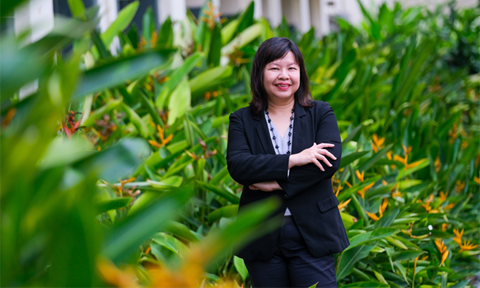Singapore Researcher’s Innovative Approach to Sustainability Education
“Research unlocks data and new information, allowing us to better understand our world better, make more informed decisions, and ultimately benefit society and nature.”
Meet Dr Tricia Seow, a geography educator and researcher at the National Institute of Education, Nanyang Technological University, Singapore (NIE NTU Singapore). Her research interests include creating board games that facilitate student learning through reflective and critical thinking.
“I have always found that stepping outside of just “doing” work, to investigate more deeply why we do this work, and how or what we do can be (re)framed and understood, is deeply enriching and fuels my ongoing passion for my work at NIE,” shares Dr Seow.
Indeed, this philosophy guides her approach to research, where she investigates the types of curricula and classroom strategies that can better engage students’ hearts and minds regarding sustainability issues. As a result, Dr Seow’s passion in both the classroom and the field sees her marrying sustainability and environmental education with geographical inquiry.
Take for example, in recent years, Dr Seow observed that many students who live in urban settings like Singapore feel little connection to nature. According to Dr Seow, they often disengage from sustainability challenges due to a sense of hopelessness and a misconception about their lack of agency as individuals to effect change. From the perspective of a researcher, this interestingly presented Dr Seow with the opportunity to study how curriculum can foster nature-connectedness in students and encourage self-efficacy and hope in the classroom.
“Nature has aesthetic and recreational value to our urban youth, but there is little appreciation for biodiversity that is a crucial part of nature,” highlights Dr Seow.
By co-developing a game, haBEEtat, that teaches students about the role that local honeybees play in an urban ecosystem, Dr Seow also hopes that students will be educated about the threats bees face, and the decisions that individuals can take to protect bees when they move into residential spaces.
“I believe that education can play an important role in nurturing informed and active citizens with the knowledge, skills and dispositions to want to rise to the challenges of the day,” says Dr Seow.
On a broader scale, Dr Seow has also developed and conducted workshops based on a climate policy game that helps learners understand the tradeoffs that must be made in transiting to a carbon neutral world. “In both of these instances, I found research into the affordances of card and board games to support self-directed learning and foster emotional affinity with these topics helpful,” smiles Dr Seow. In addition, she believes that her research on developing critical thinking through inquiry-based learning and creating a dialogic classroom culture also supported the facilitation of the games to encourage critical and reflective thinking in learners.
Furthermore, Dr Seow reveals that the games and accompanying workshops and resources have been welcomed by educators in schools across Southeast Asia, and government agencies and statutory boards in Singapore. “This gives me a sense of satisfaction as I have seen how my research projects have come together to support and promote sustainability education,” says Dr Seow.
When asked what she might have done differently if she could start over again as a researcher, Dr Seow reflects thoughtfully, “I would not. Every piece of work I have done helps me to be a better education researcher and has its place and time in my personal growth as a researcher.”
And to those who aspire to become a researcher, Dr Seow has this to advise – Graduate research can be a deeply rewarding journey if one has a sense of purpose for doing research and is deeply committed to using research to better the world.
If you share Dr Seow’s interest in sustainability and sustainability education, consider taking a step towards making an impact in real-world practice. The Humanities and Social Studies Academic Department (HSSE) at NIE is home to the Sustainability Learning Lab (SLL) in Singapore where content experts who work in the science of sustainability and education experts who research curriculum, learning and assessment come together to contribute to teaching and learning.
To find out more about Dr Tricia Seow and the research by HSSE at NIE, please visit https://www.ntu.edu.sg/nie/about-us/academic-groups/humanities-and-social-studies-education
NIE is currently accepting applications for Graduate Programmes by Research until 25 July 2024. Apply today https://ntu.sg/NIEGradProgIntake and join in the journey to bring research to life!
NIE is an autonomous institute under the Nanyang Technological University (NTU), Singapore. It is ranked among the world’s top 15 universities and Asia’s top three education institutions by the Quacquarelli Symonds (QS) ranking by subjects.
Read the original article here.







